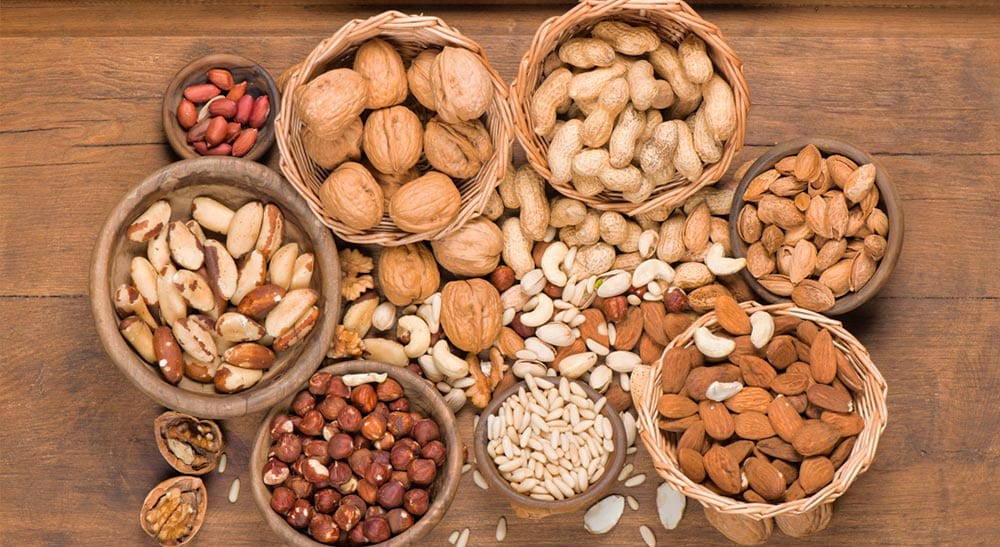By Harriet Mallinson | Published on September 7, 2017
Nuts are incredibly versatile. They’re brilliant to snack on, can be incorporated into savory and sweet recipes and and are wonderfully nutritious. Furthermore, they’re inexpensive and easy to store.
Eating them as part of a balanced diet may be good for your heart, according to the Mayo Clinic, and they contain unsaturated fatty acids and other nutrients. Nuts can help heart health by lowering low-density lipoprotein (LDL, or “bad”) cholesterol levels – which can cause plaque build-up in your blood vessels – and have also been linked to lower levels of inflammation linked to heart disease.
One drawback to nuts is that they’re high in calories, but as long as you eat them in small portions you’re good to go. Of course, the choice of nuts on offer at the store is endless: walnuts, pine nuts, almonds, macademia nuts, pecans… the list is seemingly endless.
Not only do these nuts vastly differ in size but they also play different nutritional roles. Some have exceptionally high levels of thiamin – a water-soluble vitamin that is essential for the metabolism of carbohydrates and supports healthy neural function – and others have more high-quality antioxidants. Some should be eaten after a workout and other should be consumed first thing in the morning.
We’ve created this infographic to help you navigate your way around the nut section of the supermarket and know which you should eat for what and when.

– READ MORE: Nuts About Nuts! The Ultimate Peanut Butter Taste Test –
Harriet is Editor of MACROS and perfectly capable of eating an entire log of goat’s cheese in one sitting.

